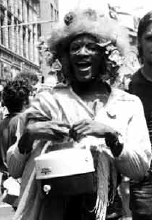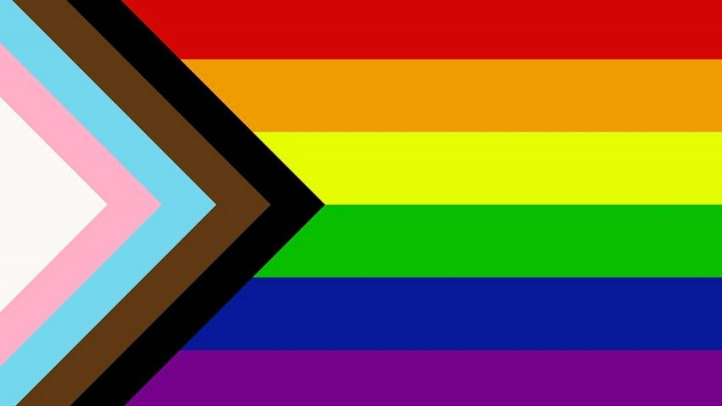Hi everyone! This is Dylan Felt (she/her and they/them) and Rocco Bagnarol (he/him and they/them) coming to you from the Evaluation, Data Integration, and Technical Assistance (EDIT) team at Northwestern University.
It’s LGBT TIG week, and we’re reflecting on our practice as LGBTQ+ evaluators (that is, evaluators who are both members of, and working in service to, the LGBTQ+ community). Today, we’re sharing our thoughts on LGBTQ+ liberation in evaluation.
“No pride for some of us without liberation for all of us.
– Marsha P. Johnson
The celebrated June 28th, 1969 riot
against homophobic
and transphobic policing at the Stonewall Inn in NYC lies at the heart of
Pride today, and remains a symbol of LGBTQ+ resistance. Although Stonewall is
an important historical and cultural touchstone for LGBTQ+ people, we don’t
want to write this post in the past tense, because liberation for all
of the LGBTQ+ community isn’t here yet. Last month, Pride was once more about
protest, and we added our voices to the
chorus of community leaders calling for an end to the violent institution
of policing.
We ask ourselves: how can we celebrate Pride for some of us, when our
trans- and gender-non-conforming (TGNC) siblings, particularly
Black and Brown transgender women, remain some of the most oppressed peoples in
our societies today? Whose murders, inequitable
access to medical care, and discriminatory
policing refute any notion that we have achieved communal liberation?

As we open LGBT TIG week on aea365, we invite you all to join us in asking: how can our LGBTQ+ Evaluation practices be liberatory?
Hot Tips:
When incorporating LGBTQ+ Liberation in your work, start with these questions:
- How will this evaluation create a world for LGBTQ+ people to thrive in?
- How are we using our position, power, and privilege to support LGBTQ+ leadership?
- When we tell LGBTQ+ people’s stories, who benefits from the telling?
- Are we being conscious of LGBTQ+ history, and the systems of oppression that still impact LGBTQ+ people today?
- Are we showing up for LGBTQ+ communities when it isn’t convenient to us?
Remember, these questions are just a starting point. These are conversations that you and your team will need to keep having.
Rad Resources:
As our history continues to be written, community-based organizations (CBOs), especially those led by Black, Brown, and trans community members, spearhead liberation and justice efforts, yet remain underfunded and under-recognized.
We have an ethical obligation to uplift the leaders and authors of today’s LGBTQ+ history and tomorrow’s liberation. If you’re looking for somewhere to start, consider donating to our friends and colleagues at Brave Space Alliance, a Black-led, trans-led organization working to ensure equity and justice for transgender people of color on Chicago’s South Side.
Signing Off
That’s all from us for now. If you’d like to chat about building a liberatory evaluation practice, reach out!
In solidarity always,
Dylan & Rocco

The American Evaluation Association is celebrating LGBT TIG Week with our colleagues in the Lesbian, Gay, Bisexual & Transgender Issues Topical Interest Group. The contributions all this week to aea365 come from our LGBT TIG members. Do you have questions, concerns, kudos, or content to extend this aea365 contribution? Please add them in the comments section for this post on the aea365 webpage so that we may enrich our community of practice. Would you like to submit an aea365 Tip? Please send a note of interest to aea365@eval.org. aea365 is sponsored by the American Evaluation Association and provides a Tip-a-Day by and for evaluators.
